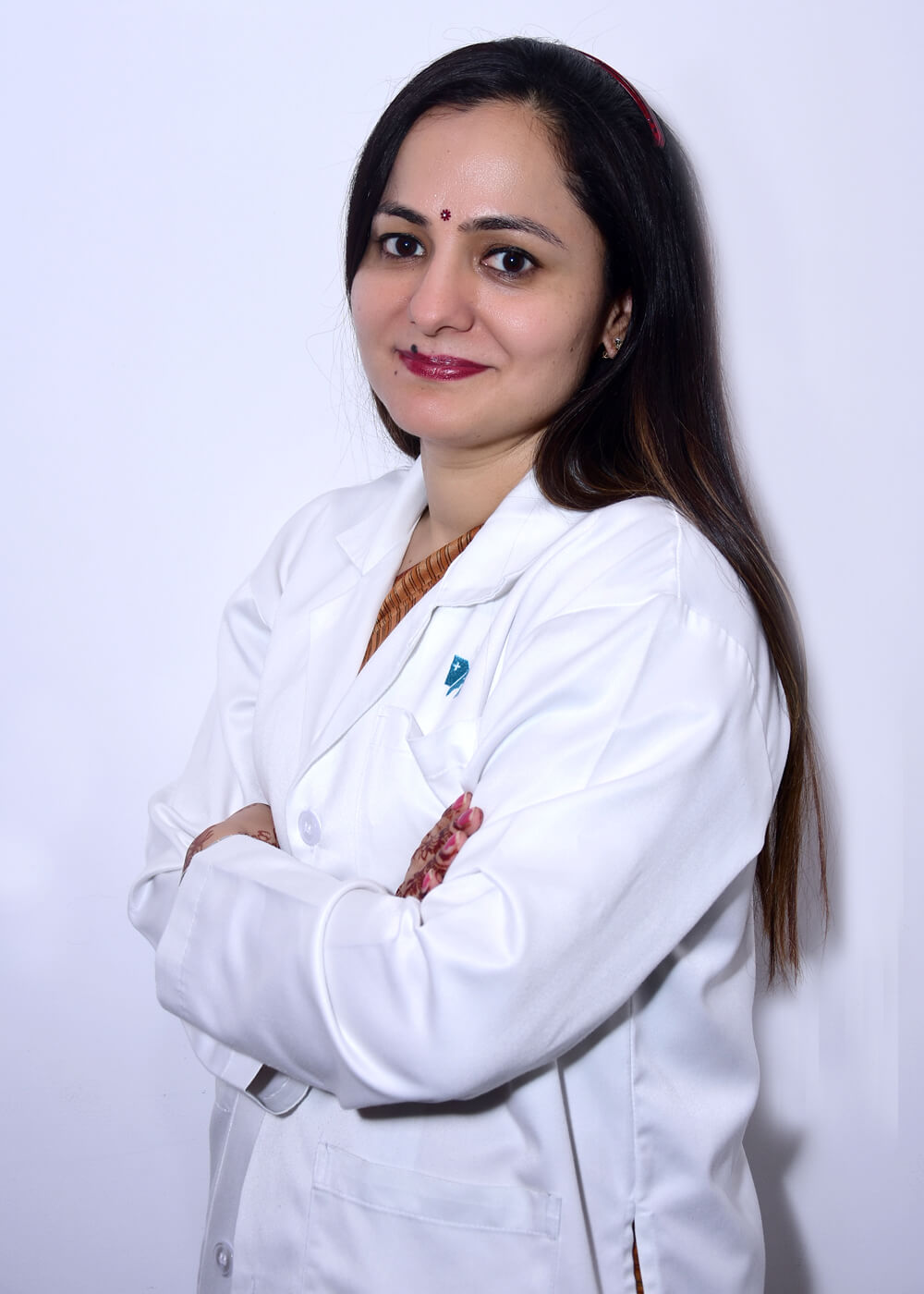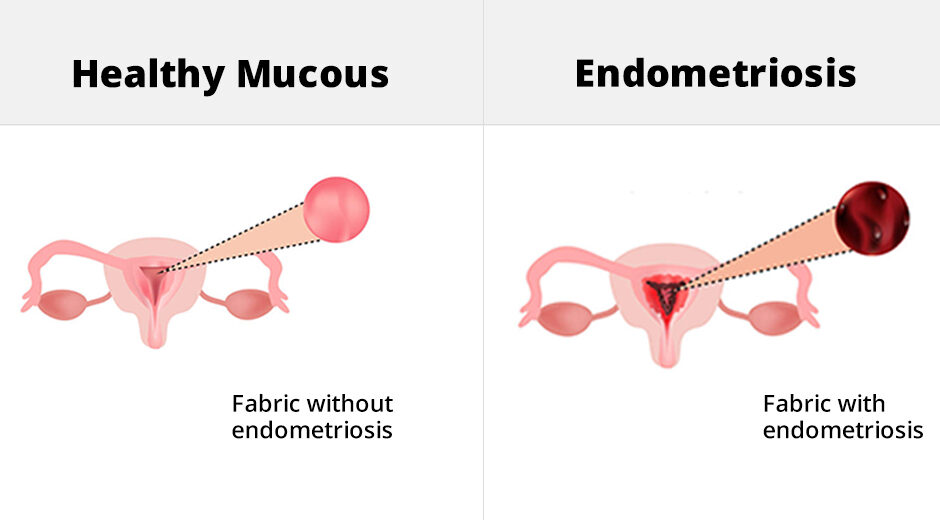What is Endometriosis?
Endometriosis is a chronic condition where tissue resembling the lining inside the uterus (endometrium) grows outside the uterus, often on the ovaries, fallopian tubes, and pelvic cavity. This tissue reacts to hormonal changes during menstruation, resulting in pain, heavy periods, and sometimes infertility. Endometriosis can vary in severity, and its symptoms can significantly affect a person's daily life.
Symptoms of Endometriosis
The symptoms of endometriosis can vary greatly from one person to another, but the most common include:
- Pelvic Pain: Chronic pelvic pain or pain during menstruation.
- Heavy Menstrual Bleeding: Excessive menstrual bleeding or bleeding between periods.
- Pain During Intercourse: Discomfort during or after sexual activity.
- Infertility: Difficulty conceiving due to blocked fallopian tubes or ovarian dysfunction.
- Bowel and Urinary Symptoms: Pain during bowel movements, diarrhea, constipation, or painful urination.
- Fatigue: Chronic tiredness that does not subside with rest.
- Nausea: Feeling nauseous, especially during menstruation.
How is Endometriosis Diagnosed?
Endometriosis can be difficult to diagnose due to symptoms overlapping with other conditions. The diagnostic process typically involves:
- Medical History and Symptom Review: Your doctor will discuss your symptoms, menstrual history, and family history of endometriosis.
- Pelvic Exam: A physical examination to check for abnormalities in the pelvic area.
- Ultrasound: An imaging test to detect cysts or abnormal growths in the reproductive organs.
- Laparoscopy: A minimally invasive surgical procedure where a camera is inserted into the abdomen to directly view and, if necessary, remove the endometrial tissue. This is the most definitive way to diagnose endometriosis.
Treatment Options for Endometriosis
Treatment options for endometriosis depend on the severity of the condition, the symptoms experienced, and the patient's desire for children. Common treatment options include:
Medications
- Pain Relief: Over-the-counter medications, such as ibuprofen or naproxen, can help relieve mild to moderate pain.
- Hormonal Treatments: Birth control pills, patches, or hormonal IUDs regulate the growth of endometrial tissue and ease symptoms.
- GnRH Agonists: These medications suppress ovarian function and reduce estrogen, preventing endometrial growth.
- Progestins: These medications prevent menstruation and reduce the growth of endometrial tissue.
Surgical Treatments
- Laparoscopy: A minimally invasive surgery to remove or destroy endometrial tissue and adhesions, providing relief from pain and improving fertility.
- Hysterectomy: In severe cases, removal of the uterus (and possibly ovaries) may be recommended, often for women who have completed their family-building.
Fertility Treatments
If endometriosis has caused infertility, assisted reproductive technologies (ART) such as In Vitro Fertilization (IVF) may be recommended. IVF bypasses the reproductive system by directly fertilizing an egg in the laboratory and implanting the embryo in the uterus.
How Endometriosis Affects Fertility
Endometriosis can affect fertility by disrupting normal reproductive function. About 30-50% of women with endometriosis experience infertility, which may result from the growth of endometrial tissue on the ovaries or fallopian tubes, preventing egg release, fertilization, or implantation. While endometriosis can reduce the chances of conception, many women with the condition can still conceive with proper medical treatment, including surgery to remove endometrial tissue or fertility treatments such as IVF.
Benefits of Endometriosis Treatment
- Pain Relief: Effective management of chronic pelvic pain and discomfort during menstruation and intercourse.
- Improved Fertility: Treatment options such as surgery or IVF can improve the chances of pregnancy.
- Enhanced Quality of Life: Managing symptoms can restore the ability to live a more normal, active life.
- Personalized Care: Tailored treatment plans are created based on individual severity and fertility goals.
Why Choose Healthour for Endometriosis Treatment?
- Expert Care: Our team of specialists provides individualized care focused on managing both the symptoms and fertility concerns associated with endometriosis.
- Comprehensive Treatment: We offer a wide range of medical and surgical treatments, including laparoscopy, hormone therapy, and IVF.
- Fertility Preservation: We provide services such as egg freezing and IVF to help preserve fertility and support your family planning goals.
- State-of-the-Art Technology: We use advanced diagnostic and treatment technologies to ensure effective management of endometriosis.
- Affordable Care: We offer high-quality, affordable treatments to ensure all patients have access to the care they need.
- Emotional Support: Our counseling and support services provide a comprehensive approach to managing the emotional challenges of living with endometriosis.
- High Success Rates: Our treatments have a high success rate in improving symptoms and increasing the chances of conception.
- Comprehensive Aftercare: We provide continuous support and follow-up care to ensure the best possible outcomes.
Steps to Start Your Endometriosis Treatment Journey
- Consultation: Schedule an appointment with a specialist to discuss symptoms, medical history, and treatment goals.
- Diagnosis: Undergo diagnostic tests like pelvic exams, ultrasound, and possibly laparoscopy for a definitive diagnosis.
- Treatment Plan: Based on your diagnosis, a customized treatment plan will be developed to manage symptoms and improve fertility.
- Ongoing Support: We provide continuous care and follow-up visits to ensure you receive the best possible outcomes.
Contact Us for Affordable Endometriosis Treatment
If you are struggling with symptoms of endometriosis or facing fertility issues, contact us today for a consultation. Our team of specialists is here to provide personalized care and treatment options to help you manage your condition and achieve your fertility goals.
FAQs About Endometriosis Treatment
- What is endometriosis?
Endometriosis is a condition where tissue similar to the uterine lining grows outside the uterus, leading to pain, heavy bleeding, and infertility.
- What are the common symptoms of endometriosis?
Common symptoms include pelvic pain, heavy periods, pain during intercourse, infertility, and digestive problems.
- How is endometriosis diagnosed?
Diagnosis involves reviewing your medical history, pelvic exams, ultrasounds, and laparoscopy for definitive confirmation.
- What treatment options are available for endometriosis?
Treatment includes pain relievers, hormonal therapies, laparoscopy, and, in severe cases, hysterectomy or IVF.
- Can endometriosis affect fertility?
Yes, endometriosis can cause infertility, but treatments such as surgery and IVF can improve the chances of conception.
- How does laparoscopy help with endometriosis?
Laparoscopy is a minimally invasive surgery that removes or destroys endometrial tissue, which can improve both fertility and pain symptoms.
- Can I still get pregnant if I have endometriosis?
Yes, many women with endometriosis can conceive with the right treatment, including surgery or IVF.
- Is endometriosis surgery safe?
Yes, laparoscopy is a safe and effective procedure, with minimal risks and high success rates.
- What are the risks of surgery for endometriosis?
As with any surgery, there are risks, including infection, bleeding, or injury to surrounding organs, though these are rare.
- How can I manage endometriosis pain?
Pain can be managed with pain relievers, hormonal treatments, and surgical options like laparoscopy or hysterectomy in severe cases.


